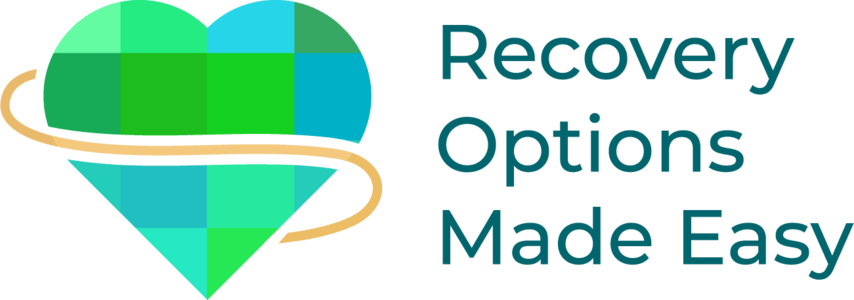JOB SUMMARY
Family Peer Support Services (FPSS) for our CFTSS Program are an array of formal and informal activities and supports provided to families caring for/raising a child who is experiencing social, emotional, mental, developmental, substance use, and/or behavioral challenges in their home, school, placement, and/or community. FPSS provide a structured, strength-based relationship between a Family Peer Advocate (FPA) and the parent/family member/caregiver for the benefit of the child/youth. Services are delivered in a trauma informed, culturally and linguistically competent manner. The FPA must be a New York State Credentialed Family Peer Advocate (FPA) or a Certified Recovery Peer Advocate with a Family Specialty (CRPA-F).
ESSENTIAL FUNCTIONS:
- Certified Recovery Peer Advocate-F candidates must serve as a bridge between families and service providers, supporting a productive and respectful partnership by assisting families to express their strengths, needs and goals.
- Based on the strengths and needs of the youth and family connecting them with appropriate services and supports. Accompanying the family when visiting programs.
- Facilitating meetings between families and service providers
- Assisting the family to gather, organize and prepare documents as needed for specific services.
- Addressing any concrete or subjective barriers that may prevent full participation in services.
- Supporting and assisting families during stages of transition which may be unfamiliar (e.g. placements, in crisis, and between- service systems, etc.).
- Promoting continuity of engagement and supports as families’ needs and services change.
- Promote Self-Advocacy, Self-Efficacy and Empowerment.
- Coach and model shared decision-making and skills that support collaboration, in addition to providing opportunities for families to self-advocate.
- Supporting families to advocate on behalf of themselves to promote shared decision-making.
- Ensuring that family members inform all planning and decision-making.
- Modeling strengths-based interactions by accentuating the positive.
- Supporting the families in discovering their strengths and concerns. Assist families to identify and set goals and short-term objectives.
- Preparing families for meetings and accompany them when needed.
- Empowering families to express their fears, expectations and anxieties to promote positive effective communication.
- Assisting families to frame questions to ask providers.
- Providing opportunities for families to connect to and support one another.
- Supporting and encouraging family participation in community, regional, state, national activities to develop their leadership skills and expand their circles of support.
- Providing leadership opportunities for families who are receiving Family Peer Support Services.
- Empowering families to make informed decisions regarding the nature of supports for themselves and their child through:
- A) Sharing information about resources, services and supports and exploring what might be appropriate for their child and family.
- B) Exploring the needs and preferences of the family and locating relevant resources
- C) Helping families understand eligibility rules.
- D) Helping families understand the assessment process and identify their child’s strengths, needs and diagnosis.
- Parent Skill Development
- Supporting the efforts of families in caring for and strengthening their children’s mental and physical health, development and well-being of their children.
- Helping the family learn and practice strategies to support their child’s positive behavior.
- Assisting the family to implement strategies recommended by clinicians.
- Assisting families in talking with clinicians about their comfort with their treatment plans.
- Providing emotional support for the family on their parenting journey to reduce isolation, feelings of stigma, blame and hopelessness.
- Providing individual or group parent skill development related to the behavioral and medical health needs of the child (i.e., training on special needs parenting skills).
- Supporting families as children transition from out of home placement.
- Assisting families on how to access transportation.
- Supporting the parent in their role as their child’s educational advocate by providing: information, modeling, coaching in how to build effective partnerships, and exploring educational options with families and school staff.
- Community Connections and Natural Supports
- Enhancing the quality of life by integration and supports for families in their own communities.
- Helping the family rediscover and reconnect to natural supports already present in their lives.
- Utilizing the families’ knowledge of their community in developing new supportive relationships.
- Helping the family identify and become involved in leisure and recreational activities in their community.
- In partnership with community leaders, encouraging families who express an interest to become more involved in faith- or cultural organizations.
- Arranging support and training as needed to facilitate participation in community activities.
- Conducting groups with families to strengthen social skills, decrease isolation, provide emotional support and create opportunities for ongoing natural support.
- Working collaboratively with schools to promote family engagement.
ADDITIONAL RESPONSIBILITIES:
- Performs other duties as assigned.
- Personal automobile insurance is required and is the sole responsibility of employee. Insurance coverage is detailed in the policy manual and must be adhered to as written.
COMPLEXITY OF WORK AND DECISION MAKING:
Works in accordance with policies and regulations which may require judgment, initiative, creativity and the ability to deal with complex factors and making of decisions based on conclusions for which there may be little precedent.
AUTONOMY AND ACCOUNTABILITY:
Work under the supervision of the CORE Clinical Supervisor and the Director of Licensed & Clinical Services. Follows state regulations regarding program guidance and compliance. Reads and understands program policy manual and requests clarification when needed.
Works from general objectives (such as governmental and agency compliance standards) and broad and varying policies, procedures, rules or precedents with significant functional guidance. Refers specific cases to manager for clarification or interpretation. Review by manager focuses on achievement of the objective and not necessarily on the means, except when required to ensure compliance with regulations.
TECHNOLOGY, EQUIPMENT OR TOOLS:
Beginning to Intermediate skills in Microsoft Office including Excel, Word, and Outlook. Evidence of skills demonstrated by the ability to perform all of the basic functions within each program; including but not limited to maintaining a calendar, sending e-mail, creating letters, etc. Must also be proficient in utilizing various computer systems for Data Entry. Familiarity working with an Electronic Health Record a plus. General office equipment is used including fax/copy/scanning machine, laptop, and cell phone.
Upon your termination of employment with ROME, your equipment including your company laptop, cell phone, and chargers must be returned to your Program Manager.
PHYSICAL DEMANDS AND WORK ENVIRONMENT:
The physical demands described here are representative of those that must be met by an employee to successfully perform the essential functions of this job. Reasonable accommodations may be made to enable individuals with disabilities to perform the essential functions.
Work follows established practices and operating procedures with some latitude for independent judgment. Maintains strict visual contact with work up to 100% of the time. May occasionally lift up to (35) thirty-five pounds, without mechanical assistance. Work involves sitting, standing, driving, climbing stairs and ambulating from task to task. The noise level in the work environment is usually light.
Services are provided in the community and/or a participant’s home under general circumstances. Telehealth services may be provided when allowable under NYS guidelines.
EDUCATION & EXPERIENCE:
- Family Peer Support will be delivered by a New York State Credentialed Family Peer Advocate (FPA). To be eligible for the FPA Credential, you must:
– Demonstrate “lived experience” as a parent or primary caregiver who has navigated multiple child serving systems on behalf of their child(ren) with social, emotional, developmental, health and/or behavioral healthcare needs.
– At a minimum be a High School Graduate or have a GED.
– Completed Level One and Level Two of the Parent Empowerment Program Training for Family Peer Advocates or approved comparable training.
– Submit three letters of reference attesting to proficiency in and suitability for the role of a Family Peer Advocate (FPA) including one from the FPA’s Supervisor.
– Document 1000 hours of experience providing Family Peer Support Services.
– Agree to practice according to the Family Peer Advocate Code of Ethics.
– Complete 20 hours of continuing education and renew their FPA credential every two years.
2. A high school diploma, or GED.
3. Mandated Reporter Training Required.
KNOWLEDGE, SKILLS & ABILITIES:
- Read and write case notes in a billable fashion and complete within 24 hours after the visit
- Must complete 25 billable hours per week (full time).
- Follow verbal and written instructions.
- Multi-task and meet deadlines.
- Willingness and ability to work with a team.
- Ability to work independently a must.
- Ability to demonstrate knowledge and skills pertaining to the use of web based electronic medical records (EMR), Microsoft Office, Excel and internet.
- Understanding of confidentiality and HIPAA laws regarding recipient’s records and information
- Ability to demonstrate good organizational skills.
- Ability to type with speed and accuracy
- Willingness to continuously learn and develop skills as they pertain to the needs of the agency and the position.
- Staff should have knowledge in the following areas or obtain within the first 90 days of employment: disability accommodations and assistive technology, financial aid, student loan default, SUD recovery resources on campus, behavioral health services in their designated service area, etc.
The Americans with Disabilities Act of 1990 (ADA) prohibits discrimination by employers, in compensation and employment opportunities, against qualified individuals with disabilities who, with our without reasonable accommodation, can perform the “essential functions” of a job. A function may be essential for any of several reasons, including: the job exists to perform that function, the employee holding the job was hired for his/her expertise in performing the function, or only a limited number of employees are available to perform that function.
Recovery Options Made Easy, is committed to equal opportunity for all, without regard to race, religion, color, national origin, citizenship, sex, sexual orientation, gender identity, age, veteran status, disability, genetic information, or any other protected characteristic. Recovery Options Made Easy, will make reasonable accommodations for known physical or mental limitations of otherwise qualified employees and applicants with disabilities unless the accommodation would impose an undue hardship on the operation of our business. If you are interested in applying for an employment opportunity and feel you need a reasonable accommodation pursuant to the ADA, please contact Colleen Hutchinson at Recovery Options Made Easy.
Apply on LINK below:

